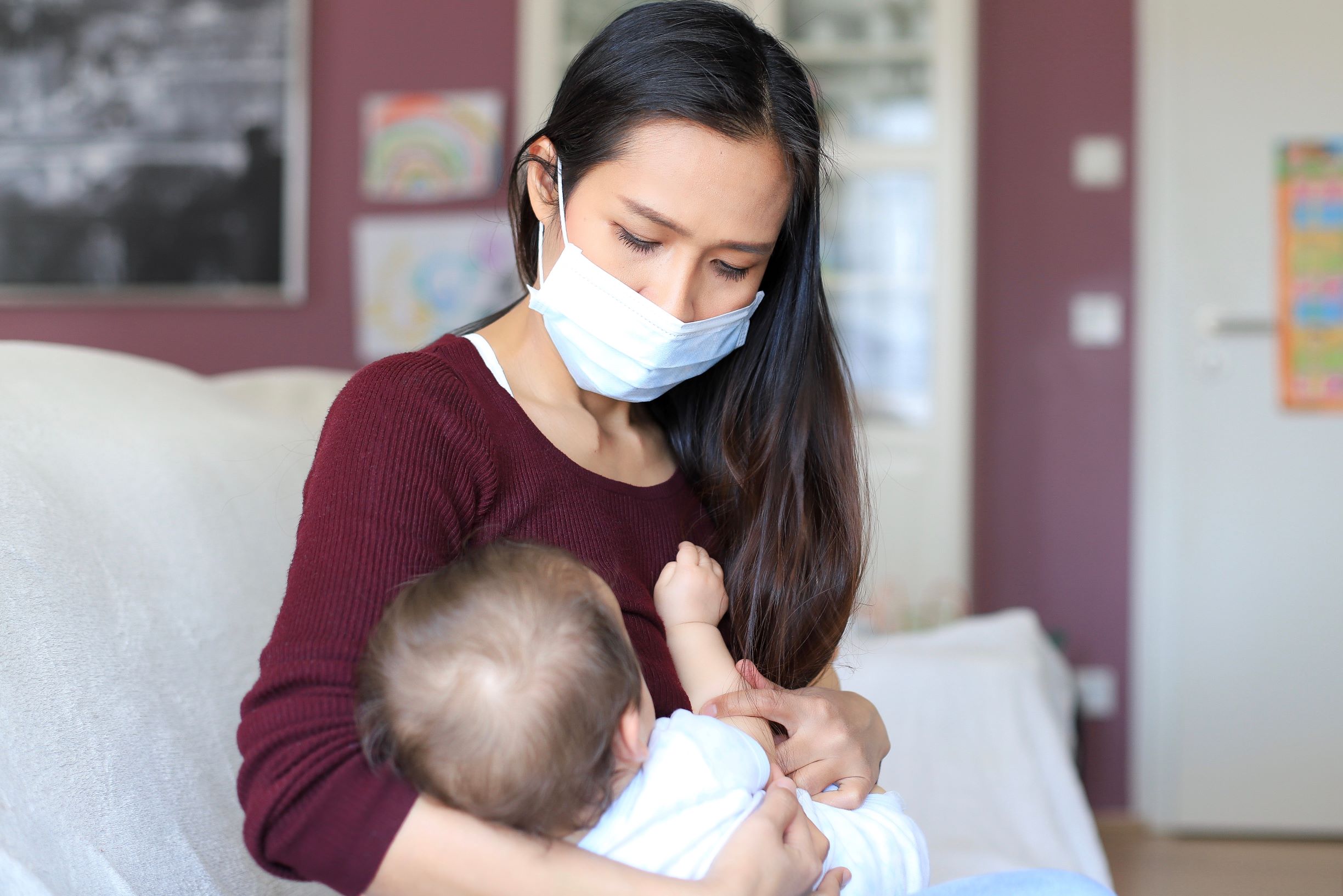Breastfeeding appears safe for mothers with COVID-19, if they take precautions
None of the 120 babies in the study contracted the disease during childbirth or in the two weeks after birth.

Mothers with COVID-19 appear unlikely to pass the disease to their newborn babies — even if they breastfeed and share the same room — provided they take certain precautions, a small new study suggests.
The study found that, out of 120 babies born to mothers with COVID-19, none contracted the disease during childbirth or in the two weeks after birth, even though most of the mothers breastfed, had skin-to-skin contact and shared a room with their babies. The mothers took steps to prevent the spread of COVID-19, including wearing surgical masks, and washing their hands and breasts before having contact with and breastfeeding their babies, according to the study, published Thursday (July 23) in the journal The Lancet Child & Adolescent Health.
"We hope our study will provide some reassurance to new mothers that the risk of them passing COVID-19 to their babies is very low," study co-lead author Dr. Christine Salvatore, a pediatric infectious diseases specialist at Weill Cornell Medicine-New York Presbyterian Komansky Children's Hospital in New York City, said in a statement. Still, the authors note that their study was relatively small, so larger studies are needed to confirm the results.
Given that COVID-19 is such a new disease, data on the risks of transmission from mothers to newborns has been limited. There have been several case reports of newborns that tested positive for COVID-19 within 48 hours after birth and appeared to have contracted the disease in the womb, the authors said. But such reports are rare.
Related: Having a Baby: Stages of Pregnancy
Guidance to pregnant women and new mothers with COVID-19 has been in flux. In the beginning of the pandemic, the American Academy of Pediatrics (AAP) initially recommended that mothers with COVID-19 be separated from their newborns, and that babies be fed with expressed breast milk until the mother was no longer infectious. However, the AAP recently updated their guidelines to say that mothers with COVID-19 may share a room and breastfeed with certain precautions.
The new study analyzed information from mothers who tested positive for COVID-19 and gave birth at one of three New York CIty hospitals between March 22 and May 17. About three-quarters of the mothers reported experiencing symptoms, and of these, about half had symptoms around the time of delivery.
Sign up for the Live Science daily newsletter now
Get the world’s most fascinating discoveries delivered straight to your inbox.
At the hospital, the mothers were allowed to share a room with their newborns, who were kept in enclosed cribs 6 feet (1.8 meters) away from the mother's bed. Mothers were also allowed to breastfeed if they felt well enough, but were required to wear surgical masks and wash their hands before holding their babies and wash their breasts before breastfeeding.
All of the babies were tested for COVID-19 within the first 24 hours after birth, and none tested positive for the disease. Of the 120 babies, 79 were tested again about a week after birth, and 72 were tested two weeks after birth. Again, none tested positive, nor did they show any symptoms of COVID-19, the report said.
Fifty-three babies had a remote checkup via videoconference at 1 month of age, and all were well and experiencing typical growth. Overall, there was no difference in outcome for babies born to mothers experiencing symptoms versus those born to mothers with COVID-19 who weren't experiencing symptoms, the study found.
"We know that skin-to-skin contact and breastfeeding are important both for mother-infant bonding and for long-term child health. Our findings suggest that babies born to mothers with COVID-19 infection can still benefit from these safely, if appropriate infection control measures are followed," study co-lead author Dr. Patricia DeLaMora, a pediatric infectious diseases specialist at Weill Cornell Medicine-New York Presbyterian Komansky Children's Hospital, said in a statement.
The authors note that about one-third of the 120 babies did not have a follow-up test for COVID-19 after birth, which they say might be due to the parents' fear of going to the doctor (often via public transportation) in the middle of a pandemic. In addition, the researchers were not able to screen the babies' blood, urine or fecal samples for COVID-19 because these types of tests were not approved at the time of the study, they said.
The infants were not tested for antibodies against COVID-19, and whether they could have acquired protective antibodies against the disease from their mothers while in the womb or through breastfeeding is unclear. Because about half of the mothers were symptomatic shortly before or during delivery, it is unlikely that all of the infants could have acquired protective antibodies, the authors said, given that it takes time for the mothers to develop and pass them on.
The new study provides "valuable data indicating that perinatal SARS-CoV-2 transmission is unlikely and allowing newborns to room-in and breastfeed is safe, with appropriate precautions," Dr. Melissa Medvedev, an assistant professor of pediatrics at the University of California San Francisco, who was not involved with the study, wrote in a commentary accompanying the study. (SARS-CoV-2 is the name of the novel coronavirus that causes COVID-19.)
However, many questions about COVID-19 in pregnancy remain unanswered, Medvedev said, such as how often pregnant women or their babies experienced complications from the disease, and how frequently it spreads from mother to child.
Originally published on Live Science.

Rachael is a Live Science contributor, and was a former channel editor and senior writer for Live Science between 2010 and 2022. She has a master's degree in journalism from New York University's Science, Health and Environmental Reporting Program. She also holds a B.S. in molecular biology and an M.S. in biology from the University of California, San Diego. Her work has appeared in Scienceline, The Washington Post and Scientific American.









